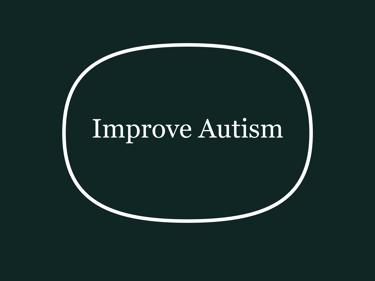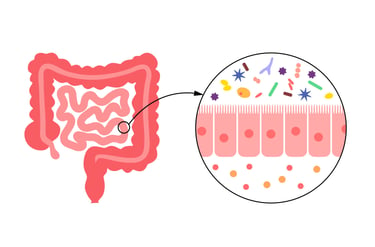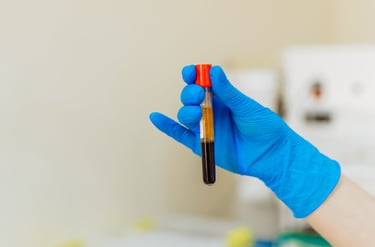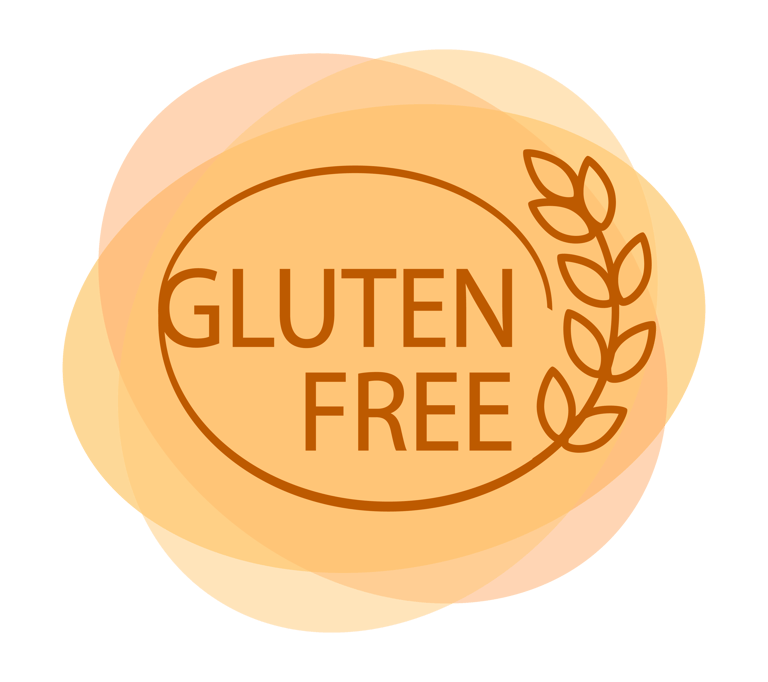Gluten free Casein free diet for Autism
Why try a gluten-free case free diet?
How does this diet help?
How do I do this diet?
Useful testing for issues
Scientific research on gluten-free casein and free diet and autism
A study by Liuliu Quan and her group found that 144 children with autism on a gluten-casein free diet had significantly improved their autism symptoms with decreased repetitive behavior and improved thinking skills[6].
An article by Eman Alamri established at 104 children with autism improved their autism by with a few tantrums, better focus, decreased over activity, improved speech and understanding, less aggressiveness, and reduced repetitive behavior [7].










Kristina Zafirovski and her team look at all the different studies on gluten and casein free diet and found that:
3 studies improved gastrointestinal (GI) issues
4 studies found improvements with sleep quality and behavior
6 studies improved communication skills, speech and social interactions
5 studies found reduced stereotypical behavior e.g. repetitive movements
1 study found improvements in non-verbal IQ and decrease in panic attacks
6 studies found improvement in cognitive function concentration and learning
6 found improvements in attention and decreased ADHD symptoms
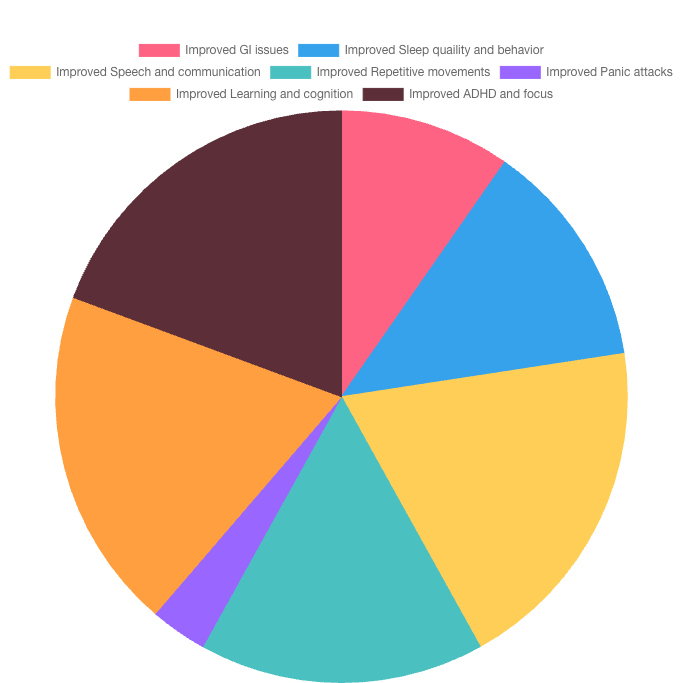

Because many studies show it helps improve autism symptoms.
A review article by Faezeh Ghalichi and his group found that 40 children improved with a gluten-casein free diet of showing improvement with autism related behavior and fewer stomach and digestive upsets[10].
Why should I try a gluten and casein free diet for autism?
Studies have shown gluten free diets improving behavioral symptoms and cognition.
Having a gluten free diet will not guarantee improved autism symptoms but there is evidence pointing in that direction. No harm in trying. Low risk for big reward.
You can find gluten free diets which will satisfy your needs. Or have a look at this gluten free diet example.
How should I introduce a gluten-free casein free diet?
Gluten-free casein free diets can be introduced quite easily.
They may take a little bit of effort in the beginning to get use to knowing and remembering what has gluten and casein in it however you will quickly learn what's what and find plenty of foods which can replace gluten and casein containing foods.


7 day Gluten free Casein free diet example
Day 1
Breakfast: Scrambled eggs with spinach and tomatoes, served with gluten-free toast.
Snack 1: Apple slices with peanut butter.
Lunch: Grilled chicken salad with mixed greens, cucumbers, carrots, olive oil, and lemon juice dressing.
Snack 2: Coconut Greek yogurt with honey and berries.
Dinner: Baked salmon with roasted sweet potatoes and steamed broccoli.
Day 2
Breakfast: Gluten-free oatmeal with bananas and almonds.
Snack 1: Carrot sticks with hummus.
Lunch: Turkey and cheese roll-ups with gluten-free crackers and grapes.
Snack 2: Rice cakes with avocado.
Dinner: Gluten-free pasta with marinara sauce, meatballs, and a side salad.
Day 3
Breakfast: Smoothie with spinach, banana, almond milk, and peanut butter.
Snack 1: Hard-boiled eggs.
Lunch: Quinoa bowl with black beans, corn, avocado, and salsa.
Snack 2: Trail mix with nuts and dried fruit.
Dinner: Grilled shrimp skewers with brown rice and asparagus.
Day 4
Breakfast: Coconut youghurt with pineapple and gluten-free granola.
Snack 1: Celery sticks with cream cheese.
Lunch: Tuna salad on gluten-free bread with lettuce and tomato.
Snack 2: Popcorn cooked with Ghee (gluten-free).
Dinner: Chicken stir-fry with vegetables, gluten-free soy sauce, served over rice.
Day 5
Breakfast: Gluten-free pancakes with maple syrup and strawberries.
Snack 1: Banana and grapes.
Lunch: Veggie burger on a gluten-free bun with sweet potato fries.
Snack 2: Coconut Yogurt and fruit smoothie.
Dinner: Beef tacos with corn tortillas, lettuce, tomato and diary-free sour cream.
Day 6
Breakfast: Omelet with mushrooms, bell peppers, and cheese.
Snack 1: Rice pudding (gluten-free).
Lunch: Gluten-free chicken noodle soup with a side of fruit.
Snack 2: Veggies with ranch dip (gluten-free).
Dinner: Roasted pork tenderloin with mashed potatoes and green beans.
Day 7
Breakfast: Chia seed pudding with coconut milk and mango.
Snack 1: Energy balls made with gluten-free oats, peanut butter, and honey.
Lunch: Grilled gluten-free sourdough bread with pumpkin soup.
Snack 2: Fresh fruit salad.
Dinner: Vegetable curry with chickpeas, served over basmati rice.
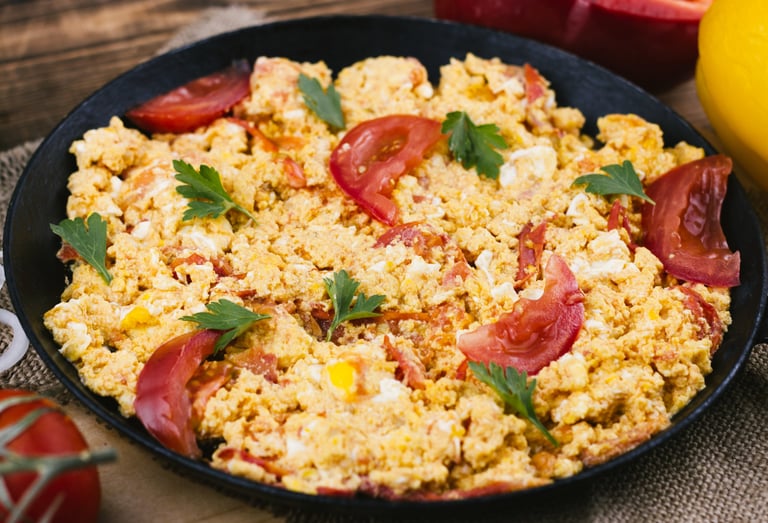

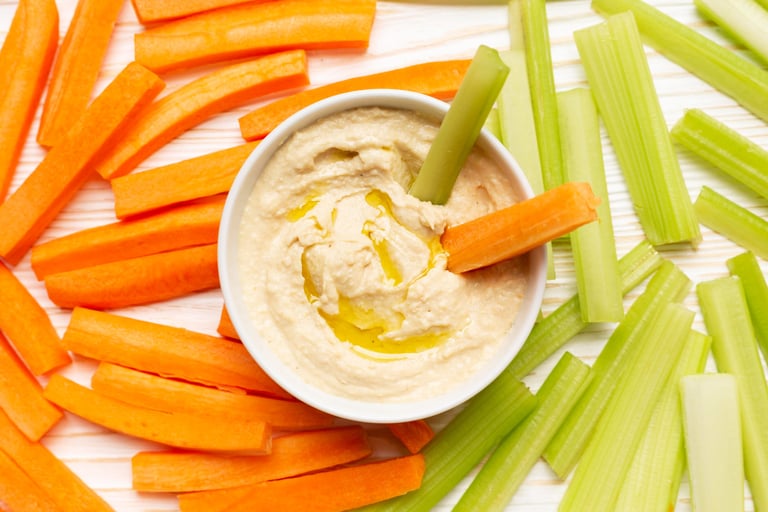

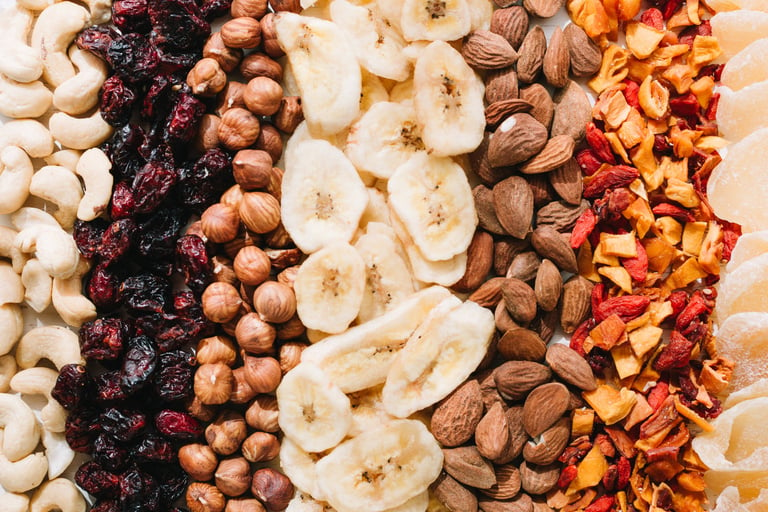



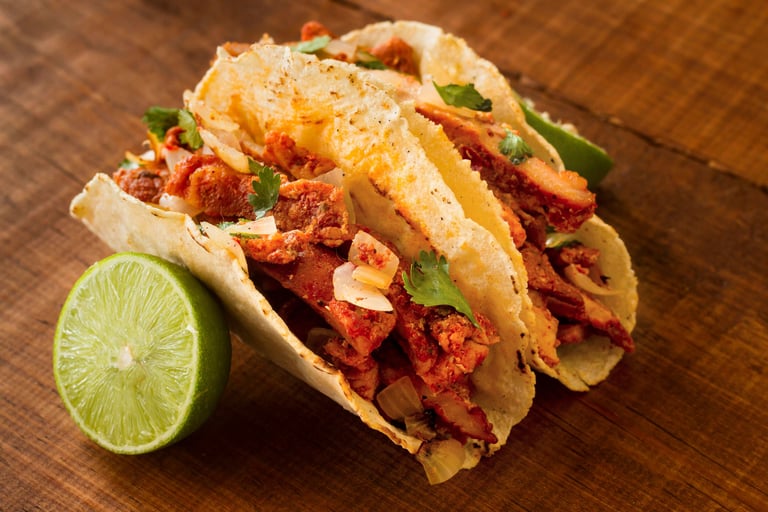

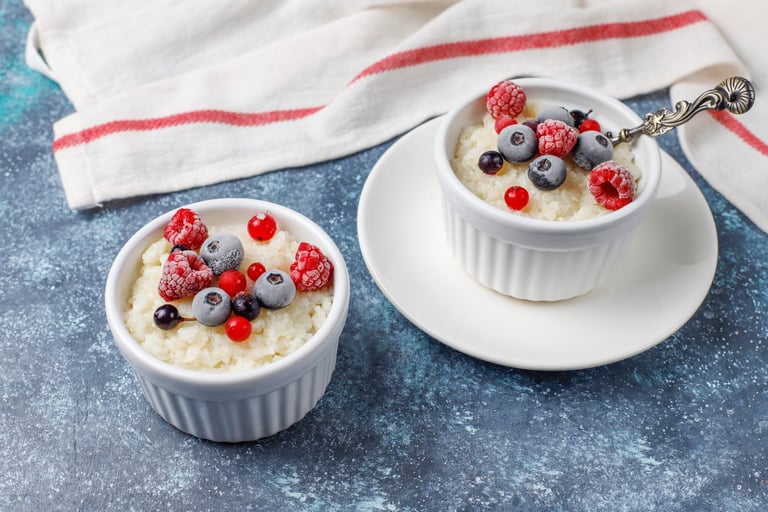

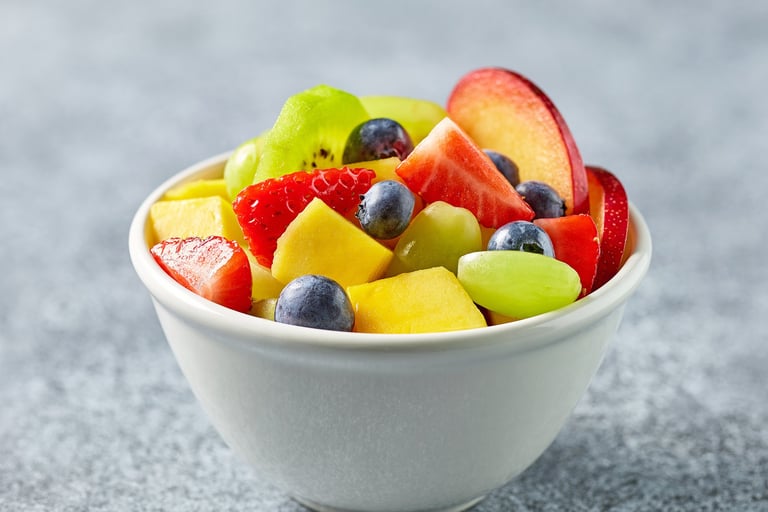

It affects their ability to absorb nutrients required for normal body and brain development
It affects their ability to prevent certain environmental chemicals, toxins and products which out would normally not be able to pass through the gastrointestinal tract into the body
It disrupts the normal microbiome within the gut which is necessary for good health and production of important molecules our body's need and depend on.
An ongoing theme among children with autism is the fact that they often have gastrointestinal issues. These gastrointestinal issues often have other underlying causes such as having weak or leaky lining of the intestines, having poor or bad microbiota in the gut or having general inflammation and damage to the lining of the intestines.
Gluten and Casein can further affect these factors and lead to continuing or worsening gastrointestinal issues.
Gastrointestial issues affects children with autism in 3 ways:
How does a gluten-free casein free diet help with autism?
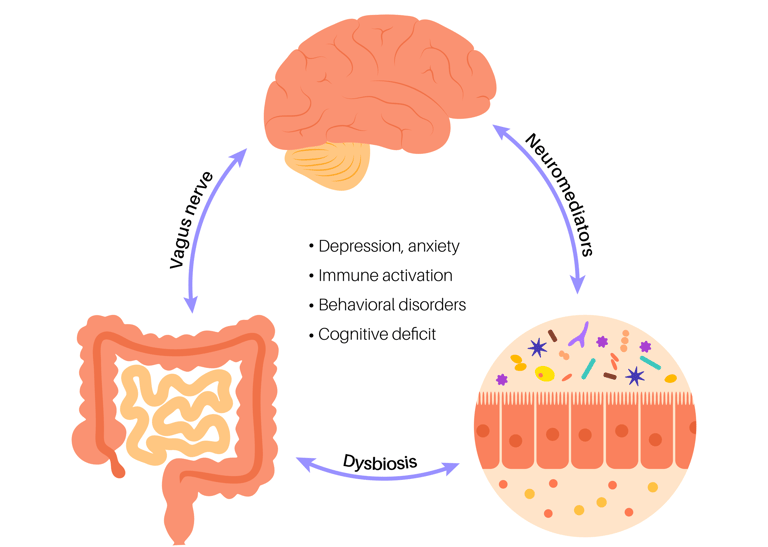

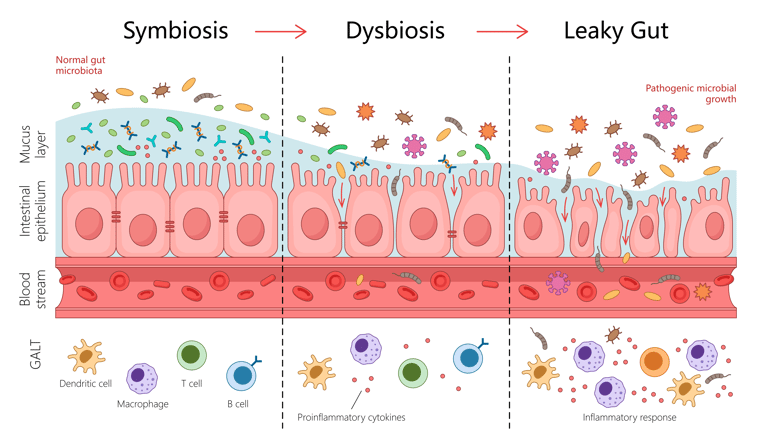

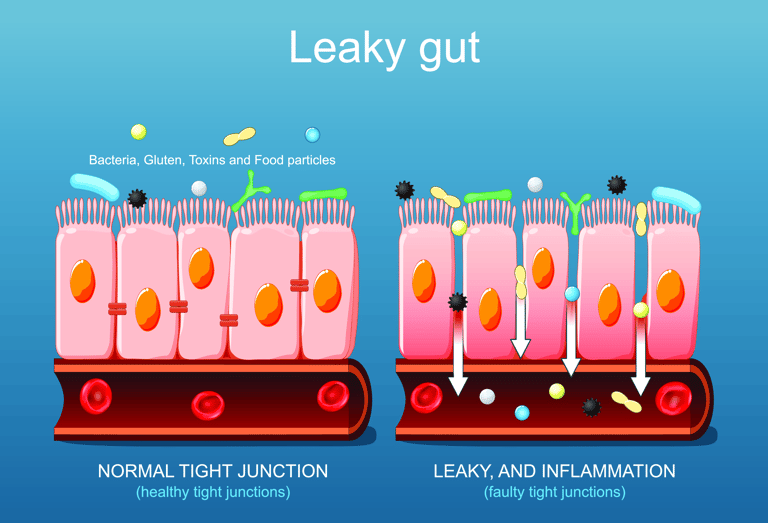

Weak, leaky and inflamed gut
Leaky gut refers to the intestinal wall being able to allow particles to penetrate. Our intestinal wall acts like a barrier allowing nutrients to be absorbed and preventing other particles entering our blood steam.
The intestinal wall can be damaged and affected by gluten and casein.
For many children with autism gluten and casein can trigger an immune response to the gut causing general inflammation and damage to the intestinal wall. This damage inhibits the wall's ability to prevent certain particles, chemicals and toxins from being absorbed into the blood stream. These particles can them disrupt normal bodily functions and can even get into the brain affecting childhood development and normal neurological processes.
Think of this like sand getting into a car engine. It shouldn't be there and over time will disrupt the engine and prevent it from working properly.
It's the same with chemicals and toxins entering out body though a leaky gut.
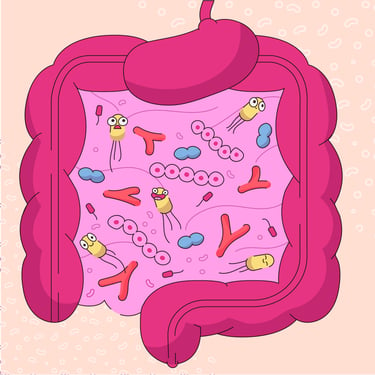

Altered Gut Microbiota
Microbiota is a group of bacteria which live in a particular place such as our gut. It is completely normal and necessary for our survival!!!
The microbiota in our gut actually work for us. They have many roles:
WE NEED THE RIGHT BACTERIA IN OUR GUT!!!
People with autism often have the wrong or unbalanced type of bacteria.
Produce vitamins such as Vitamin K, biotin, folate, and some B vitamins (B1, B9, B12)
Produce neurotransmitters such as serotonin, dopamine, norepinephrine, and GABA
Line and protect our intestines from bad bacteria which can harm us
Helps absorb nutrients and break down carbohydrates and fiber
Helps our immune system distinguish between good and bad bacteria
Every wonder why babies are given Vitamin K when they're born? Because Vitamin K is produced by gut bacteria which newborns don't have yet. - Our body and gut bacteria interact!
Individuals with autism often do not have the right microbiota which helps normal bodies functions [MISC 1].
Gluten and casein both cause inflation to the gut lining but also promote growth of bad bacteria [6].
Correcting this by trying a gluten-casein free diet may help reduce gut inflammation, promote good microbiota growth intern can allow normal functioning and improve autism symptoms.
Gluten and casein are common allergens
Gluten is a common allergen and research has shown that up to 75% of people who have coeliac disease do not know they have it [MISC 2].
Gluten can even have a mild reaction to the gut which could be one contributing factor to making it leaky and weak.
This can further cause inflammation, disrupt the gut barrier and further impaired nutrient absorption and healthy microbiota growth.
This will help provide a healthier gastrointestinal tract necessary for normal healthy development of children.
